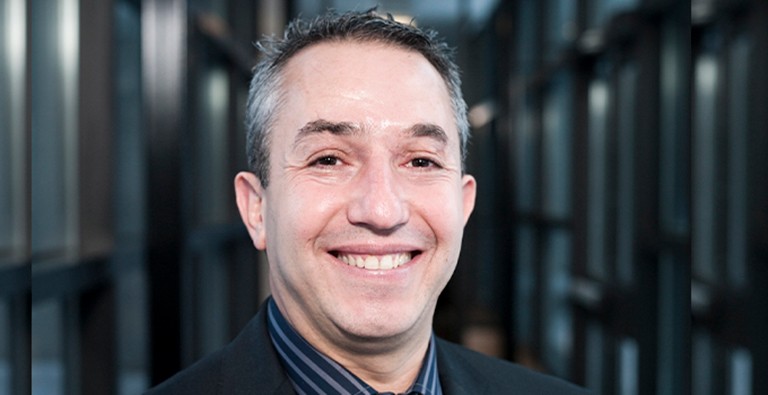Concordia’s Volt-Age program is leading the charge toward a decarbonized future

It has been a year since Concordia secured its historic Canada First Research Excellence Fund (CFREF) grant. Since then, the research program Volt-Age has made important strides in meeting its goal of being a national leader in creating solutions for a decarbonized future through electrification.
Karim Zaghib, chemical and materials engineering professor and CEO of Volt-Age, speaks about the progress made so far and what comes next.
'We focus on applied research projects that significantly impact society’
What have been the key achievements of this project so far?
Karim Zaghib: We wanted to get our researchers to work as fast as possible. I’m happy to say that earlier this year we funded 36 seed projects that cover a wide spectrum of studies. We have researchers using digital tools and data from smart devices to help major financial institutions better manage energy consumption and make their buildings greener. Another project is working with the construction industry to produce cleaner concrete by removing carbon from the air and using electricity instead of fossil fuels.
Creating better building designs using solar power is also at the centre of scientific work at Volt-Age. And we’re creating new gaming tools that cities can use to gather input from citizens about urban planning decisions.
And of course, we are also working on developing new technology to redesign batteries for electric vehicles, making them more cost effective.
These are just a few examples of the exciting work that we are funding and supporting.
 Karim Zaghib, chemical and materials engineering professor and CEO of Volt-Age.
Karim Zaghib, chemical and materials engineering professor and CEO of Volt-Age.
What are the main goals of the Volt-Age scientific team?
KZ: Volt-Age is about a different way of doing research and finding the best solutions for creating a sustainable society. We believe the process of research is as important to us as the result. That's why we focus on applied research projects that significantly impact society. This means fostering our team's development and guiding our researchers toward commercializing their work, scaling their projects and ensuring viability on a larger scale.
How are you going to collaborate with communities, industry and government going forward?
KZ: Collaboration is at the heart of all our projects and is already in progress. Each project has at least one industrial partner, and their research is designed based on collaboration between universities.
We have a strong tie with Indigenous communities, and one of our leading partners, Indigenous Clean Energy, is collaborating with communities across Canada.
We are working with city officials to understand their needs and provide them with the solutions to move toward a decarbonized future. This is happening through the living labs that Volt-Age researchers will set up in different cities. For example, the Lachine-East living lab in Montreal is analyzing the shortcomings related to sustainable urban development and affordable housing.
Learn more about Concordia’s Volt-Age research program.


